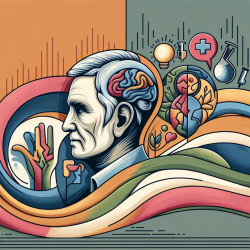The recent study titled "Educational and health outcomes of children and adolescents receiving antidepressant medication: Scotland-wide retrospective record linkage cohort study of 766,237 schoolchildren" published in the International Journal of Epidemiology, offers a comprehensive look into the educational and health impacts on children receiving antidepressant medication. This blog aims to help practitioners leverage these findings to improve outcomes for children under their care.
Key Findings
The study identified several significant outcomes for children on antidepressants compared to their peers:
- Increased absenteeism (IRR 1.90, 95% CI 1.85–1.95)
- Higher rates of school exclusion (IRR 1.48, 95% CI 1.29–1.69)
- Greater likelihood of having special educational needs (OR 1.77, 95% CI 1.65–1.90)
- Lower academic attainment (OR 3.00, 95% CI 2.51–3.58)
- Higher unemployment rates post-school (OR 1.88, 95% CI 1.71–2.08)
- Increased hospitalization (HR 2.07, 95% CI 1.98–2.18)
- Higher mortality rates (HR 2.73, 95% CI 1.73–4.29)
Implications for Practitioners
These findings underscore the importance of comprehensive care for children on antidepressants. Here are some actionable steps practitioners can take:
1. Monitor Absenteeism
Increased absenteeism was a significant predictor of poorer academic and employment outcomes. Practitioners should work closely with schools to monitor attendance and identify early signs of chronic absenteeism. Implementing interventions to improve school attendance could mitigate some of the negative educational outcomes.
2. Address Special Educational Needs (SEN)
Children on antidepressants were more likely to have SEN. Practitioners should ensure these children receive appropriate educational assessments and support services. Collaboration with special education professionals can help tailor interventions that address both educational and mental health needs.
3. Support Academic Attainment
The study found a strong association between antidepressant use and lower academic performance. Practitioners should advocate for academic support services such as tutoring, individualized education plans (IEPs), and accommodations to help these children succeed academically.
4. Focus on Mental and Physical Health
Children on antidepressants had higher rates of hospitalization and mortality. Regular health check-ups and mental health screenings can help identify and address any emerging health issues. Providing holistic care that includes mental health support, physical health monitoring, and healthy lifestyle promotion is crucial.
Encouraging Further Research
While this study provides valuable insights, it also highlights the need for further research. Practitioners should stay informed about ongoing studies and emerging data to continuously improve their practice. Encouraging and participating in research can help build a more robust evidence base for treating children on antidepressants.
Conclusion
The findings from this study highlight the complex interplay between mental health, educational outcomes, and overall well-being in children receiving antidepressants. By implementing data-driven interventions and advocating for comprehensive support, practitioners can help mitigate some of the adverse outcomes identified in the study. To read the original research paper, please follow this link:
Educational and health outcomes of children and adolescents receiving antidepressant medication: Scotland-wide retrospective record linkage cohort study of 766,237 schoolchildren.










